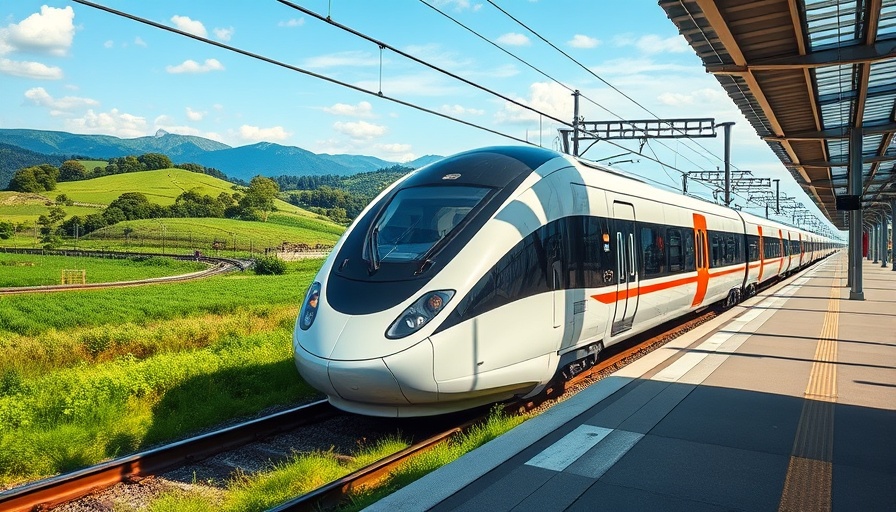
Indonesia's Ambitious Rail Plans Amidst Economic Hurdles
Indonesia is poised to extend its high-speed rail network from Jakarta to Surabaya, a project that promises to revolutionize travel and commerce in one of Southeast Asia's largest nations. This endeavor, however, is shadowed by significant challenges—chief among them being the nation’s growing debt to China.
The High-Speed Rail Vision
The ambitious project aims to decrease travel time dramatically between the two cities by utilizing the advanced technology of high-speed rail, targeting both economic growth and enhanced connectivity. According to government officials, this rail extension is not only about improving transport; it is a key element in Indonesia's broader strategy to stimulate the economy and reduce congestion on roads and airports.
The Debt Dilemma
However, the extension is not without its complications. Indonesia has already borrowed substantially from China for the initial phase of the rail project, and rising concerns are emerging about the sustainability of this debt. Economic analysts warn that Indonesia's growing dependency on Chinese financing could lead to a precarious financial situation that threatens not only the rail project but also broader economic stability. The looming specter of economic repercussions adds a layer of urgency to the ongoing discussions about this project.
Chinese Influence or Indonesian Sovereignty?
This predicament brushes against the ongoing debate over China's growing influence in Southeast Asia. Some argue that while Chinese investment can catalyze development, excessive reliance might jeopardize Indonesia's sovereignty, raising fears of a potential 'debt trap.' This situation has compelled Indonesia to evaluate its future foreign relations and explore alternative funding avenues to avoid this perilous dependency.
Political Perspectives and Future Predictions
Stakeholders across the political spectrum in Indonesia are reacting differently to the potential risks posed by this partnership with China. While some leaders advocate for continued collaboration citing immediate economic benefits, others stress the need for more sustainable development models. Moving forward, Indonesia's response to these challenges will significantly shape not only its internal policies but also its international relations and economic strategies.
Potential Counterarguments
It is crucial to acknowledge diverse perspectives within this discourse. Advocates for the rail project emphasize the long-term benefits, such as job creation and improvements in efficiency that can arise from investment in infrastructure. They argue that criticisms of excessive foreign debt may overlook the potential upside and ignore the strategic importance of enhanced transport networks in a region known for its diverse logistics challenges.
Actionable Insights for Stakeholders
For investors, policymakers, and citizens, understanding the complexities surrounding the high-speed rail project in Indonesia is vital. Engagement in open discussions about the implications of foreign investments can lead to more informed decisions. Stakeholders should consider advocating for diverse funding sources, improved financial management practices, and mechanisms that ensure transparency and sustainability in projects involving significant foreign loans.
Conclusion: The Path Forward
Indonesia stands at a crossroads with its high-speed rail ambitions, balancing the allure of modernization against the backdrop of economic prudence and national sovereignty. As the country charts its course, the outcomes from these deliberations may well determine not just the fate of the rail project but that of Indonesia’s economic future. Stakeholders should engage in dialogues that prioritize sustainable development and responsible financial practices to navigate these challenges.
 Add Row
Add Row  Add
Add 




Write A Comment